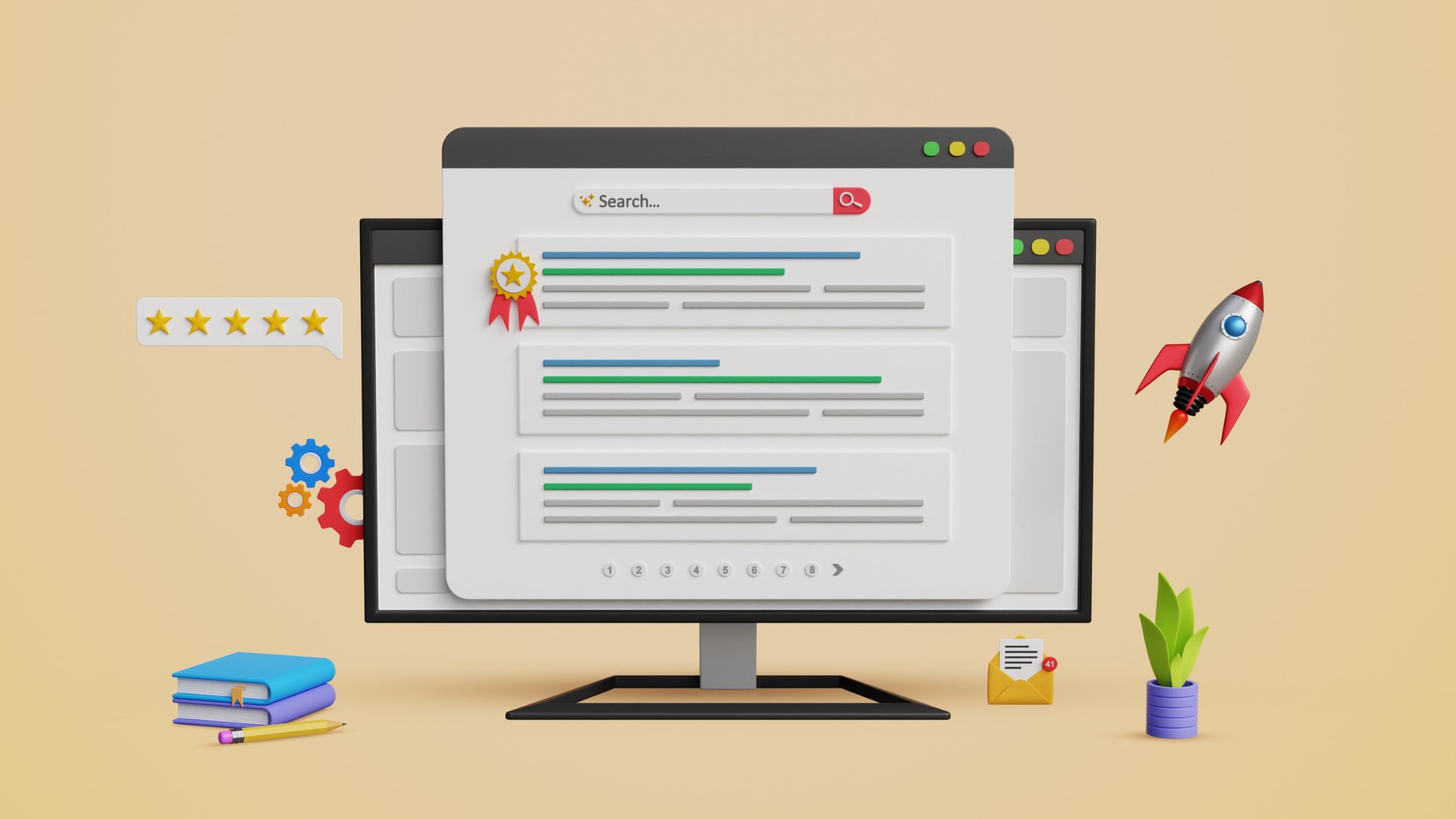As we approach 2024, the recruitment landscape is evolving rapidly. To stay competitive, employers must adapt their hiring strategies to meet new challenges and opportunities.
This article explores the key trends shaping the future of recruitment, from AI-driven processes to remote work models. We'll examine how these innovations are transforming talent acquisition, employee experience, and workforce development.
By understanding and embracing these trends, you can position your organisation to attract and retain top talent in an increasingly dynamic job market.
As we enter 2024, the way companies find job candidates is changing quickly. Artificial Intelligence (AI) and automation are revolutionising hiring processes, with 6 in 10 recruiters optimistic about its impact.
These technologies are streamlining tasks like writing job descriptions, allowing recruiters to focus on building relationships and creating positive candidate experiences.
Skills-based hiring is gaining prominence, potentially increasing talent pools by 10x. This approach helps identify the most qualified candidates and opens doors for individuals from underrepresented groups. Simultaneously, the gig economy continues to grow, necessitating a redefined approach to talent acquisition and retention.
Data-driven decision-making is becoming crucial, with recruiters leveraging analytics to optimise strategies. Additionally, employer branding and candidate experience are emerging as key differentiators in the competitive talent market. To stay ahead, recruiters must adapt to these trends, embracing new technologies and methodologies while maintaining a human-centric approach to hiring.
In today's fast-paced hiring landscape, AI and automation are revolutionising recruitment processes. These technologies offer a myriad of benefits, from enhancing efficiency to reducing bias. By leveraging AI-powered tools, you can streamline various aspects of hiring, including CV screening, candidate outreach, and interview scheduling.
AI and automation can significantly accelerate your hiring initiatives. Automated recruiting solutions can help you post jobs, screen resumes, and communicate with candidates more efficiently. This frees up your recruiters to focus on strategic tasks, such as building relationships with top talent.
Implementing AI-driven chatbots can provide candidates with real-time updates and answers to their questions, improving their overall experience. Asynchronous video interviews offer flexibility, allowing candidates to showcase their skills at their convenience.
AI enables you to make more informed hiring decisions by analysing vast amounts of data. Tools like ChatGPT can assist in creating tailored job descriptions and personalised candidate outreach, enhancing your recruitment marketing efforts.
While AI and automation offer numerous advantages, it's crucial to maintain a balance. Ensure you prioritise ethical AI practices and maintain human oversight to create a fair and inclusive hiring process.
Remote work has transformed from a niche concept to a mainstream reality. By 2025, 22% of the American workforce will be remote. This shift has unlocked access to a global talent pool, allowing you to recruit top talent regardless of geographical location. Over 16% of companies now operate fully remotely, enabling organisations to draw from a diverse and specialised workforce.
Embracing remote work offers numerous advantages:
Companies offering remote work options have a 25% lower employee turnover rate compared to those that do not. Additionally, flexible work arrangements have increased employee productivity by as much as 13%, with reduced distractions and a more comfortable work environment.
While remote work offers many benefits, it also presents challenges:
To overcome these challenges, invest in the right technology, prioritise communication, and promote employee well-being. Implementing strong security protocols and providing employee training on best practices is crucial for protecting against cyber threats in a remote work environment.
In 2024, you'll notice a significant shift towards skills-based hiring, with 45% of companies expected to eliminate bachelor's degree requirements for some roles. This approach prioritises a candidate's practical abilities over educational background, allowing you to tap into a broader, more diverse talent pool.
Skills-based hires have shown to perform on par with traditional hires in terms of promotion rates and demonstrate 9% longer tenure, suggesting this strategy can be successful.
To succeed with this approach, you should:
Sophisticated assessment tools, including AI-driven platforms, can help you evaluate candidate skills more effectively and objectively. Remember, whilst this trend is gaining ground, a hybrid approach integrating both educational qualifications and practical skills may be most effective for your organisation.
In today's competitive job market, personalisation is key to creating a memorable candidate experience. By tailoring your recruitment process, you can significantly improve engagement and attract top talent. Research shows that 91% of job seekers investigate a company's reputation before applying, making a positive first impression crucial.
To personalise effectively:
Utilise technology to streamline personalisation efforts. Video interviews can enhance the candidate experience by offering flexibility and a more personal touch. Additionally, maintain an interactive career website that showcases your company culture and values.
Remember, a candidate-centric approach prioritises the applicant's needs throughout the entire recruitment journey. By implementing these strategies, you'll not only improve your employer brand but also increase the likelihood of attracting and retaining top talent in 2024 and beyond.
In today's competitive job market, flexible work policies have become a crucial factor in attracting and retaining top talent. Research shows that up to 50% of talent professionals believe requiring full-time in-office work is hindering their recruiting efforts. To stay ahead, you need to embrace this new normal.
Hybrid working has emerged as a popular compromise, allowing a mix of in-office and remote work. This approach can help you:
Offering flexible work arrangements can yield significant advantages:
By implementing flexible work policies, you can create a more attractive, efficient, and diverse workplace, giving your organisation a competitive edge in talent acquisition.
While AI dominates the conversation, other technological advancements are reshaping recruitment processes. Integrating various tech solutions can streamline your hiring workflow and enhance candidate experience.
Consider implementing applicant tracking systems (ATS) to manage applications efficiently, or utilise video interviewing platforms for remote assessments. Data analytics tools can provide valuable insights into your recruitment metrics, helping you make informed decisions.
Chatbots and automated scheduling systems can improve candidate communication and save time. However, it's crucial to maintain a balance between automation and human touch. Remember, technology should complement, not replace, the human element in recruitment.
As you explore these tools, ensure they integrate seamlessly with your existing systems and align with your organisation's hiring goals.
Harnessing the power of data can significantly enhance your recruitment strategy.
By utilising data analytics tools, you can gain valuable insights into various aspects of your hiring process. These tools can help you identify trends in candidate sourcing, assess the effectiveness of different recruitment channels, and even predict future hiring needs based on historical data.
For instance, you might discover that certain job boards yield higher-quality candidates for specific roles, or that particular skill sets are becoming increasingly in demand in your industry. This data-driven approach allows you to make more informed decisions about where to focus your recruitment efforts and how to allocate your resources most effectively.
Moreover, data analytics can help you streamline your candidate screening process. By analysing the characteristics of successful hires, you can refine your selection criteria and potentially reduce time-to-hire. However, it's crucial to ensure that your data-driven approach doesn't inadvertently introduce bias into your hiring process. Regular audits of your data and algorithms can help maintain fairness and inclusivity in your recruitment strategy.
In today's competitive job market, providing an exceptional candidate experience can set your organisation apart. Technology plays a crucial role in shaping this experience, from the moment a potential candidate discovers your job posting to their final interview.
Implementing user-friendly application systems can significantly improve the initial interaction candidates have with your company. Mobile-optimised application processes, for instance, allow candidates to apply easily from their smartphones, potentially increasing your applicant pool.
Automated communication tools can keep candidates informed throughout the hiring process, reducing anxiety and improving their perception of your organisation. These tools can send timely updates about application status, schedule interviews, and even answer frequently asked questions.
Virtual reality (VR) and augmented reality (AR) technologies are emerging as innovative ways to provide candidates with immersive experiences of your workplace culture and job roles. While still in early adoption stages, these technologies show promise in helping candidates make more informed decisions about their fit within your organisation.
Remember, while technology can greatly enhance the candidate experience, it's essential to maintain a human touch. Personalised interactions, especially during later stages of the hiring process, can leave a lasting positive impression on candidates, regardless of the outcome.
In today's competitive job market, a strong employer brand is crucial for attracting and retaining top talent. Your employer brand encompasses your company's reputation, values, culture, and unique offerings as an employer. Research shows that a well-crafted employer brand can significantly impact recruitment outcomes, employee engagement, and overall business performance.
To strengthen your employer brand:
According to a study, a company's reputation is often considered more important than its products or services. Therefore, it's essential to align your actions with your stated values and culture. Experts suggest conducting regular employee surveys and feedback sessions to gain insights and address concerns, ensuring your employer brand resonates with both current and potential employees.
Remember, a strong employer brand goes beyond mere storytelling—it requires consistent actions that reflect your company's ethos and commitment to employee well-being. By focusing on these strategies, you can create a distinctive employer brand that sets you apart in the competitive talent marketplace.
In today's competitive job market, offering customisable benefits packages can be a game-changer for attracting top talent. Research shows that benefits packages meeting employee needs can drive a 78% retention rate, compared to just 41% when benefits fall short. To leverage this advantage, consider the following strategies:
By implementing these strategies, you'll create a benefits package that not only attracts top talent but also fosters loyalty and job satisfaction among your workforce.
Investing in your employees' growth is crucial for long-term retention and organisational success. Comprehensive benefits packages, including opportunities for skills development and career advancement, can help attract and retain top talent. Consider implementing personalised development plans that account for each employee's strengths, interests, and career goals.
To build a future-ready workforce, leverage innovative approaches like microlearning. This method promotes continuous learning, enabling employees to acquire new skills quickly and adapt to changing job requirements. Additionally, utilise career pathing to provide clear opportunities for growth within your organisation, leading to higher job satisfaction and engagement.
Offer competitive salaries aligned with industry standards and provide flexible work arrangements to improve work-life balance. Recognise and reward employees for their efforts, not just results, using a mix of social recognition and monetary rewards. By fostering a positive, inclusive company culture where employees feel valued, you can create a desirable environment that attracts, retains, and nurtures exceptional talent.
As we approach 2024, the recruitment landscape is evolving rapidly. Embracing AI, remote work, and skills-based hiring will be crucial for staying competitive. Personalisation, flexible policies, and robust employer branding will help attract top talent. Offering customisable benefits and investing in talent development will be key to retention. By adapting to these trends, you'll position your organisation for success in the dynamic job market ahead.
Ready to implement these strategies and find the right talent FAST? Start your free trial with FastJobs today and revolutionise your hiring process.

In Singapore’s job market, portals offer fast access while agencies provide tailored matchmaking.
Read more
Retail in SG is rising! Wage growth & skills training create new career paths. Explore jobs with FastJobs.sg.
Read more
Hiring faster starts here—Job Bump boosts your listing by 30%+ without needing a repost.
Read more